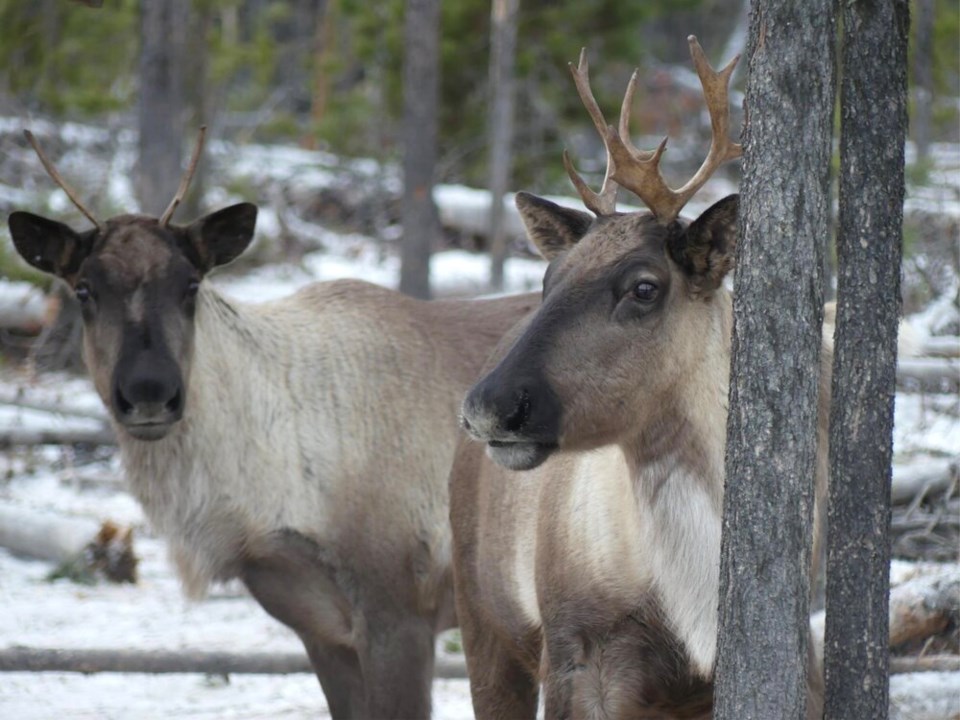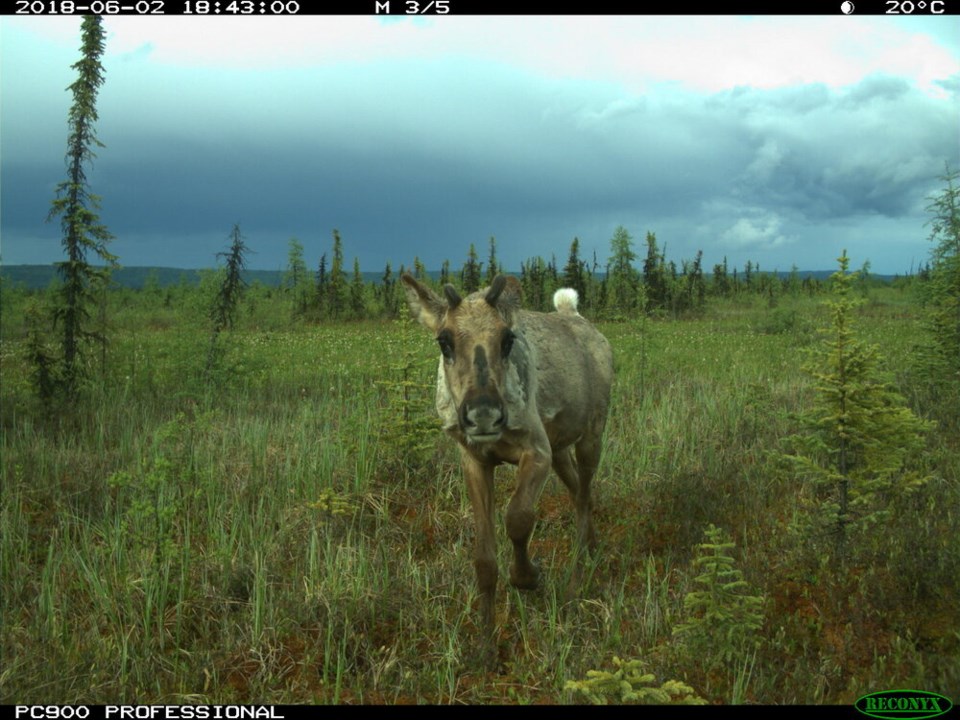Canada’s forestry, mining and oil industries have engaged in a concerted effort to lobby the federal government to adopt “often questionable” carbon and biodiversity offset projects, a new analysis claims.
The allegations, presented by Greenpeace Canada Thursday, are partly based on government documents the group obtained through freedom of information laws.
The environmental group claims dozens of natural resource companies and industry groups have pressured senior government officials and staff to move federal policy away from protecting nature and absolute reductions in carbon emissions, despite government commitments to do so.
Carbon offset projects help avoid or absorb atmospheric carbon through tree planting programs. By selling credits in a program, companies that pollute can offset their emissions. Biodiversity offsets offer a similar scheme — but instead of buying and selling credits for carbon, companies can set aside or improve tracts of nature, such as wildlife habitat.
Advocates of offset schemes say they offer market solutions to the climate and biodiversity crises companies can quickly buy into. But critics, including Greenpeace Canada, have criticized offset programs, arguing that any legislation backing them could lead to “habitat banking,” where “wealthy developers could pay a fee in order to destroy biodiversity.”
“We're seeing a really unified front across those industries delivering a clear message to the federal government when it comes to protecting nature: ‘offset, offset and offset,’” said Shane Moffett, the head of Greenpeace Canada’s nature and food campaign.
Instead of offset programs, Moffett said what’s needed are stronger regulations and new legislation to set out clear expectations for industry to operate more sustainably.
Lobbying ministries responsible for environment up 222%
Moffett, who was part of the team that conducted the investigation, said they examined federal lobbying records spanning from 2015 to 2021.
The six-year period saw a 222 per cent increase in lobbying meetings held with four government departments in charge of environmental policy, Greenpeace says.
Documents Greenpeace obtained through access to information laws show how representatives from logging, mining and oil companies met with federal government representatives on June 29, 2023, ahead of a United Nations summit held in Montreal late last year to hammer out a deal on protecting the planet’s biodiversity.
That meeting, which included 41 companies and was hosted by Natural Resources Canada and Environment and Climate Change Canada, was held with the goal of “fostering discussions with natural resources industries and noting their responses, perspectives, concerns, and opportunities,” the documents note.
In forestry, a number of industry groups and green credential bodies attended the meetings. B.C.-based Paper Excellence, Canada’s largest forestry company, was among two forestry companies present at the meeting.
The forestry representatives told government that focusing on endangered caribou was taking up too much time, according to a summary of the meeting.
“More attention needs to go beyond caribou because it is taking so much time and oxygen out of the room — not that it is not important, but they are a whole bunch of species at risk that don't have an action plan,” reads the document.

Biologists consider caribou an umbrella species, whose presence in a forested landscape improves the chances of survival for dozens of other creatures. In boreal forests, protecting caribou habitat also means protecting hotspots of carbon stored in soil and peatlands.
Moffett said downplaying the importance of caribou is part of “an old playbook for the industry.” He pointed to a 2018 peer-reviewed paper that found industry “strategies of manufactured uncertainty” have “successfully delayed efforts to effectively address the decline of boreal caribou.”
“It kind of reaffirms my observation that they're trying to have business as usual,” he said.
The forestry industry also told government that “maybe companies should have the ability to put input on [the threatened] species list” and that more should be done to recognize “good practices on the ground instead of protection in the stringent sense.”
Protecting 30 per cent of Canada’s nature by 2030 — now an official government target —“will be difficult to achieve,” the industry representatives said.
Communicating with government to advance green operations normal, say companies
Glacier Media reached out to several of the companies and industry associations that attended the June 2023 meeting, but most did not respond by publication time.
In an emailed statement, Blair Dickerson, Paper Excellence’s vice-president of public affairs, said the company “communicates regularly with all levels of government in the regions where we operate and is registered accordingly.”
“Canada’s forest products industry is recognized as a global leader in sustainable management of the world’s most renewable resource,” Dickerson said.
Lisa Baiton, president and CEO of the Canadian Association of Petroleum Producers, did not directly address Greenpeace’s lobbying claims, saying the industry group “continues to engage with federal and provincial governments regarding the importance of the oil and natural gas industry to the country’s economy.”
Industry is taking “great strides” as it works to “reduce its emissions and environmental footprint,” she added.
Representatives from the mining sector at the meeting raised a number of concerns, including a “need for more financial instruments to accompany the mining companies,” and in another reference, measures to “evaluate offsets and trade-offs.”
Altogether, Moffett says the document is just one example of a wider push to elevate offsets as a solution.
A spokesperson for Natural Resources Canada said in an email that it “recognizes the importance of free and open access to government” while participating in regularly engaging with industry, experts and environmental groups “on a range of issues.”
“This includes meetings with various energy and natural resources industry stakeholders, with a focus on reducing emissions, building a sustainable low-carbon economy, assuring energy security, positioning Canada as a clean energy and technology supplier of choice and the transition to cleaner fuels and the net-zero economy,” said the department in an email.
When asked about the alleged rise in lobbying activity, the ministry deferred to Canada’s lobbyist registry.
The spokesperson did not respond to concerns raised over carbon and biodiversity offset projects.
Key player in push for offsets backs off campaign
Greenpeace’s analysis also points to Shell Canada for having a particularly “heavy hand” in lobbying Ottawa over its policies to reduce emissions and protect nature.
Shell Canada did not attend the June 2023 roundtable, but Moffett says since at least 2020, the company has been pushing offset projects, including a plan to plant 800,000 trees in B.C.
Moffett pointed to a 2022 report backed by Shell Canada that concludes using Canada’s natural assets as offsets is an “opportunity worth pursuing.”
Moffett said the policies advocated in the report are “exactly the kind of system that the federal government has been rolling out.”
Earlier this year, Greenpeace claimed victory over the company after it filed a complaint with Canada’s Competition Bureau claiming Shell Canada misled the public. Shortly after bureau took up the complaint, the company abandoned its public advertising campaign promoting carbon offsets. But Moffett says the withdrawal of public advocacy for climate offsets does not mean they don’t continue to happen behind closed doors.
“Shell Canada has been very instrumental, a key player from the start in advocating for this federal carbon offset system,” Moffett said.
Shell Canada did not respond to Glacier Media’s request to comment on Greenpeace’s claims.



